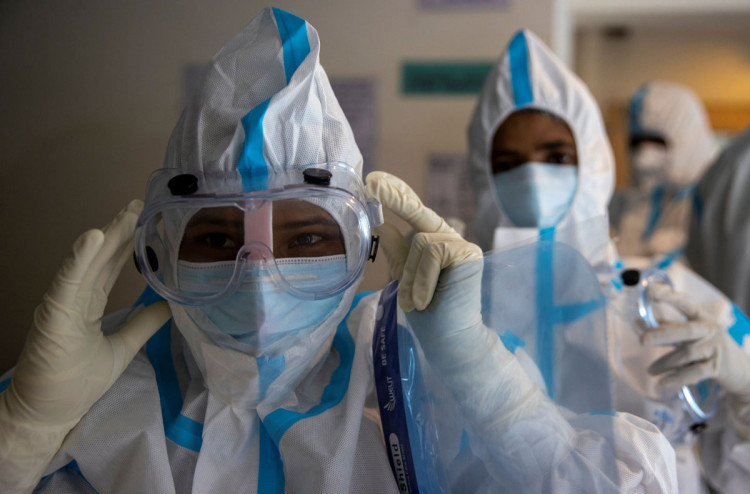After the coronavirus pandemic and the increase in instances of monkeypox, word of a new virus can cause global anxiety.
According to the World Health Organization, the extremely contagious Marburg virus has been reported in Ghana, West Africa, this week.
The declaration comes after two separate individuals from the southern Ashanti area of Ghana tested positive for the Marburg virus and subsequently died.
The patients exhibited symptoms such as fever, nausea, diarrhea, and vomiting, according to the WHO, which added that over 90 contacts are being monitored.
Earlier this July, blood samples from two individuals in southern Ashanti suggested they were infected with the Marburg virus.
The Ghana Health Service stated that the Pasteur Institute in Senegal confirmed the diagnosis after receiving the samples.
"This is the first time that Marburg virus sickness has been confirmed in Ghana," said Patrick Kuma-Aboagye, head of the GHS.
The Marburg virus can be transmitted by infected animals, such as bats. There is no therapy or vaccination for Marburg, which is nearly as fatal as Ebola.
The country's health officials report that they are working to isolate close contacts and prevent the spread of the virus, while the WHO is mobilizing resources and deploying specialists to the country.
"The health authorities have reacted fast and initiated preparations for a potential outbreak. Without timely and prompt action, Marburg can quickly spiral out of control," Matshidiso Moti, WHO regional director for Africa, emphasized this.
WHO reports that previous outbreaks and sporadic cases of Marburg have occurred in Angola, the Democratic Republic of the Congo, Kenya, South Africa, and Uganda.
To limit the possibility of the virus spreading, the Ghana Health Service has asked the Ghanaian public to avoid mines and caverns inhabited by fruit bats and to thoroughly prepare all animal items before eating. The natural hosts of the Marburg virus are fruit bats, according to the health service.
In 1967, the first cases of the virus were detected in Europe. Two big outbreaks in Marburg and Frankfurt, Germany, as well as in Belgrade, Serbia, led to the disease's initial detection.
At least seven fatalities were attributed to this outbreak, with the CDC stating that the first afflicted individuals were exposed to African green monkeys brought from Uganda or their tissue while doing laboratory research.
There is no evidence that the virus is endemic to other continents, such as North America, and the CDC reports that infections outside Africa are "rare."






